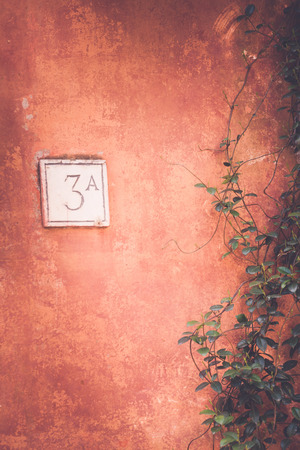Understanding Ank Dosh in Hindu Beliefs
Ank Dosh, a term rooted in Vedic astrology, holds significant importance within Hindu culture and daily life. In Indian tradition, “Ank” translates to “number,” while “Dosh” refers to a fault or dosha. Together, Ank Dosh points to certain numerical imbalances that may impact an individual’s destiny, relationships, or the overall energy of a home. According to Vedic astrologers, each person’s birth date and name correspond to specific numbers, which are believed to influence their karmic path and the energies they attract.
The concept of Ank Dosh is closely linked with numerology and is widely acknowledged during major life events such as marriages, property purchases, or starting new ventures. Many believe that unresolved Ank Dosh can lead to obstacles, financial instability, or disharmony in the household. Within Hindu society, families often consult learned pundits or vastu experts to identify the presence of Ank Dosh and seek remedies for its correction.
In Hindi culture, addressing Ank Dosh is not merely a matter of superstition but is considered an essential step towards aligning one’s environment and life with cosmic principles. The practice integrates seamlessly with Vastu Shastra—the traditional Indian system of architecture—where harmonizing numbers and spatial energies plays a vital role in fostering positive home energy and overall well-being.
Impacts of Ank Dosh on Home Energy
Ank Dosh, as understood in traditional Indian astrology and Vastu Shastra, is believed to have a profound influence on the energy flow within a household. According to Hindi cultural beliefs, numbers carry specific vibrations that can either harmonise or disturb the natural balance of a home. When Ank Dosh is present, it is said to create negative energy, leading to obstacles in personal relationships, health issues, and financial instability.
Traditional Beliefs Surrounding Ank Dosh
In many Indian families, the presence of Ank Dosh is taken seriously because it is thought to disrupt the peaceful environment essential for prosperity and happiness. Common manifestations include increased quarrels among family members, frequent illnesses, and a persistent feeling of unrest. Elders often advise immediate remedies when Ank Dosh is detected during housewarming ceremonies (Griha Pravesh) or through Kundli analysis.
Common Effects of Ank Dosh on Household Dynamics
| Aspect of Life | Possible Negative Impact | Traditional Signs |
|---|---|---|
| Relationships | Misunderstandings and lack of harmony among family members | Frequent arguments, emotional distance |
| Health | Recurring illnesses or accidents within the household | Unexplained fatigue, chronic issues |
| Finance | Obstacles in income generation or unexpected losses | Delayed payments, sudden expenses |
| Mental Peace | Sustained stress and anxiety among residents | Persistent worries, sleeplessness |
Cultural Context in Indian Homes
Ank Doshs impact is not only viewed through an astrological lens but also integrated with Vastu principles. For example, certain directions or room placements may amplify the dosh’s effects if not aligned with positive energies. In Indian culture, these imbalances are believed to block the blessings of Lakshmi Mata (the goddess of wealth), making timely detection and remedy essential for maintaining Shubh (auspicious) vibes at home.
![]()
Role of Vastu Shastra in Balancing Dosh
Vastu Shastra holds a significant place in Indian culture, especially when it comes to balancing the negative influences, or dosh, such as Ank Dosh. Rooted deeply in ancient Indian architecture and spiritual traditions, Vastu Shastra is more than just a set of building guidelines; it is a holistic science aimed at harmonizing the energies of a living space with natural forces. In Hindi households, the impact of Ank Dosh is believed to create disturbances in family harmony, health, and prosperity. Hence, following Vastu principles is seen as a practical and spiritual remedy to neutralize these adverse effects.
Understanding Negative Energies from Ank Dosh
Ank Dosh is often associated with imbalanced numbers or planetary combinations that can disrupt the energetic equilibrium of a home. According to Hindu beliefs, such imbalances manifest as obstacles in relationships, financial instability, or health challenges. Vastu Shastra recognizes these negative energies and prescribes specific spatial arrangements and remedies to correct them.
Vastu Recommendations for Mitigating Dosh
The core idea behind Vastu-based remedies is to realign the flow of positive energy (prana) while minimizing the entry or accumulation of negativity. For instance, placing the main entrance in an auspicious direction such as North or East is considered favorable. Similarly, avoiding clutter, especially in the Northeast corner (Ishan), ensures that energy flows freely. Many families also incorporate traditional symbols like Swastika or Om at entrances, believing these motifs invite prosperity and counteract dosh-related negativity.
Integration with Daily Spiritual Practices
In addition to architectural adjustments, Vastu Shastra encourages integrating spiritual rituals such as lighting diyas (oil lamps), chanting mantras, or performing regular pooja (worship). These practices are culturally significant across India and help cleanse the home environment from unseen dosha influences. By combining these rituals with Vastu principles, Hindi families create a harmonious balance between physical space and spiritual well-being.
Through generations, Indians have relied on Vastu Shastra not just for constructing homes but also for creating spaces that nurture positive energy. Addressing Ank Dosh by adhering to these time-tested guidelines allows families to experience peace, success, and overall happiness within their domestic environment.
4. Common Vastu Remedies for Ank Dosh
Ank Dosh, according to Vastu Shastra, can be balanced by applying specific home remedies that are deeply rooted in Indian traditions and cultural beliefs. These remedies focus on harmonizing the energies within the household and reducing the negative effects associated with Ank Dosh. Below are some of the most effective and culturally relevant Vastu remedies commonly practiced across India:
Strategic Placement of Sacred Symbols
The use and placement of auspicious symbols play a vital role in neutralizing Ank Dosh. Popular choices include Swastik, Om, and Shree Yantra. These symbols should be placed at the main entrance or in the pooja room to attract positive vibrations.
| Symbol | Placement | Purpose |
|---|---|---|
| Swastik | Main Door, Kitchen Entrance | Invites prosperity and wards off evil |
| Om | Pooja Room, Living Room | Enhances spiritual energy and peace |
| Shree Yantra | Pooja Altar, Cash Box | Brings wealth and harmony |
Rituals and Offerings
Performing daily rituals such as lighting a diya (oil lamp) with pure ghee in the northeast corner of the house is highly recommended. Reciting mantras like the Gayatri Mantra or Navagraha Mantra can further cleanse negative influences linked to Ank Dosh.
Vastu Salt Remedy
Keeping a bowl of sea salt in the corners of rooms, especially where negativity is felt, helps absorb harmful energies. Change the salt every week to maintain its effectiveness.
Potted Tulsi Plant Placement
Tulsi (Holy Basil) is revered in Indian households for its purifying properties. Place a Tulsi plant near the entrance or in the northeast direction to bring health and spiritual benefits while countering Ank Dosh.
Essential Tips for Daily Practice
- Avoid placing mirrors directly opposite the main door as it reflects positive energy outwards.
- Keep the central area (Brahmasthan) of your home clutter-free for optimal energy flow.
- Hang bells or wind chimes at entrances to dispel stagnant energies.
By integrating these practical and culturally significant Vastu tips into daily life, Indian families can effectively manage Ank Dosh and foster a harmonious home environment filled with positivity.
5. Incorporating Regional Traditions and Customs
Ank Dosh Remedies Across India’s Diverse Regions
Ank Dosh, a numerological imbalance believed to affect harmony and fortune in homes, is addressed differently across India’s diverse cultural landscape. While Vastu Shastra provides foundational guidance, local traditions and customs play a vital role in shaping specific remedies. Understanding these regional variations helps individuals apply the most relevant and effective practices for their family’s well-being.
Northern India: Rituals and Mantras Rooted in Tradition
In Northern states such as Uttar Pradesh, Punjab, and Rajasthan, families often consult local pandits or astrologers to identify Ank Dosh. Traditional remedies may include recitation of mantras like the Gayatri Mantra or Hanuman Chalisa, combined with home pujas (ritual worship) performed on auspicious days. It is common to see sacred threads (kalava) tied at home entrances, or the use of specific yantras (mystic diagrams) placed near main doors as protective measures against negative energies associated with Ank Dosh.
Western India: Cultural Symbols and Community Practices
In Maharashtra and Gujarat, people incorporate local folk rituals along with Vastu principles. Rangoli designs made from rice flour or colored powders at entryways are believed to ward off doshas. Reciting Navagraha Stotra or lighting diyas (oil lamps) during evening prayers is a regular practice. In many Gujarati households, torans (decorative door hangings) made of mango leaves or marigold flowers are hung above main doors to neutralize dosha influences and invite positive energy.
Southern India: Temple Visits and Astrological Guidance
South Indian families, particularly in Tamil Nadu and Karnataka, often seek remedies through temple visits and offerings to deities such as Lord Venkateswara or Goddess Lakshmi. Special homams (fire rituals) are performed to pacify planetary influences linked to Ank Dosh. Astrology plays a prominent role, with remedial gemstones suggested by local astrologers based on individual charts. Placing Tulsi plants near the entrance or in the courtyard is also considered highly auspicious for harmonizing home energies.
Eastern India: Unique Customs and Protective Chants
In Bengal and Odisha, rituals like chanting Durga Saptashati or performing Chandi Path are believed to reduce negative effects of Ank Dosh. Folk customs such as drawing alpona (rice paste art) at the threshold during festivals symbolize protection against misfortune. Some families keep conch shells (shankh) in their living spaces, which are blown during puja to purify the environment.
Respecting Local Heritage for Effective Remedies
The rich tapestry of Indian culture ensures that Ank Dosh remedies remain closely intertwined with local beliefs, language, and community practices. Whether through specific mantras, decorative symbols, or ritualistic observances, incorporating regional traditions enhances the overall effectiveness of Vastu-based solutions for positive home energy in Hindi culture.
6. Seeking Guidance from Indian Astrologers and Experts
In the journey of balancing Ank Dosh and enhancing positive energy at home, consulting local astrologers (jyotish) and Vastu experts holds deep significance in Indian culture. These professionals possess traditional knowledge rooted in centuries-old scriptures such as the Vedas, Puranas, and classical Vastu Shastra texts. In India, families often seek the guidance of a jyotish to analyze their kundali (birth chart) for signs of Ank Dosh or other doshas that may impact household harmony.
Role of Jyotish in Ank Dosh Remedies
The jyotish examines planetary positions and numerological influences using techniques like Graha Dasha analysis, Nakshatra mapping, and personalized muhurat selection. They may suggest specific upayas (remedies), including performing pujas, wearing gemstones, chanting mantras (like the Gayatri Mantra or Navagraha Stotra), and organizing homa/havan ceremonies to neutralize negative influences of Ank Dosh.
Importance of Consulting Vastu Shastra Experts
Vastu consultants play an equally important role by inspecting the homes orientation, room placements, entrance direction (pravesh dwar), and elemental balance. They recommend practical adjustments such as altering furniture placement, choosing auspicious colors (shubh rang), or installing symbolic items like vastu pyramids, crystals, or yantras. Popular advice includes maintaining a clutter-free north-east corner (Ishanya kona) for prosperity and placing a Tulsi plant in the courtyard for positive vibrations.
Community Practices and Cultural Trust
Many Indian families rely on word-of-mouth recommendations to find trusted jyotishis and Vastu specialists within their community. Annual rituals like Griha Pravesh (housewarming ceremony) are often conducted under their supervision to ensure long-term peace and positivity. The integration of expert advice with daily practices reflects the strong belief in shastriya parampara (scriptural tradition) across Hindi-speaking regions.
By engaging with knowledgeable astrologers and Vastu consultants, families not only gain personalized solutions but also foster a deeper spiritual connection with their living spaces—ensuring that both ancient wisdom and contemporary needs are harmoniously balanced for enduring positive home energy.

